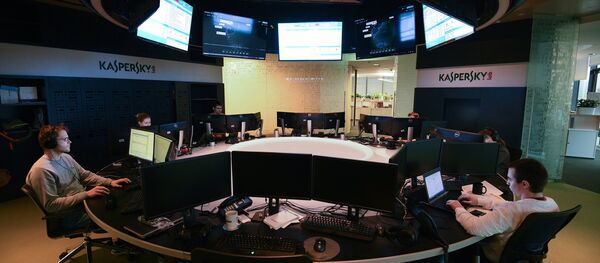The US Homeland Security Department's decision to ban the use of Kaspersky Lab software on the pretext of engagement in cyber espionage could actually be the start of a "wholesale attack" on Russian businesses abroad, the head of the State Duma’s Committee on Information Policy, IT Technologies and Communications Leonid Levin told Sputnik.
He described the US move as part of an economic war being waged against Russian companies.
“This whole story with Kaspersky smacks of an attempt to get rid of an efficient and competitive company working in the field of cybersecurity,” Levin added.
He added that for Americans democracy, just like free competition, makes sense only when it serves their interests and if it doesn’t, they resort to all kinds of bans.
“I think that Russian [companies] should wake up to reality and start including a possible loss of the US market in their business plans,” Bruter added.
Meanwhile, Kaspersky Lab’s CEO Yevgeny Kaspersky has accepted an invitation to testify in US Congress to address accusations that his company may be engaged in espionage.
Expert in cybersecurity Andrei Masalovich told Radio Sputnik that Kaspersky’s testimony in Congress would be good PR both for him and his company.
“Kaspersky Lab has come under a politically-charged attack simply because it is Russian. Moreover, this is a clear case of unfair competition at its worst. My suspicion is that this is a kind of attack every Russian company that is competitive in the world market may now come under,” Masalovich warned.
On Wednesday, the US Department of Homeland Security ordered all of the country’s federal departments and agencies to discontinue the use of Kaspersky Lab products over fears that the firm could have ties to state-sponsored spying programs.
The company denied the allegations.
Washington's recent attacks on Kaspersky Lab is seen by Moscow as an attempt to undermine efforts to rebuild a working relationship to combat terrorism and to initiate unfair competition in the information field and software market.




